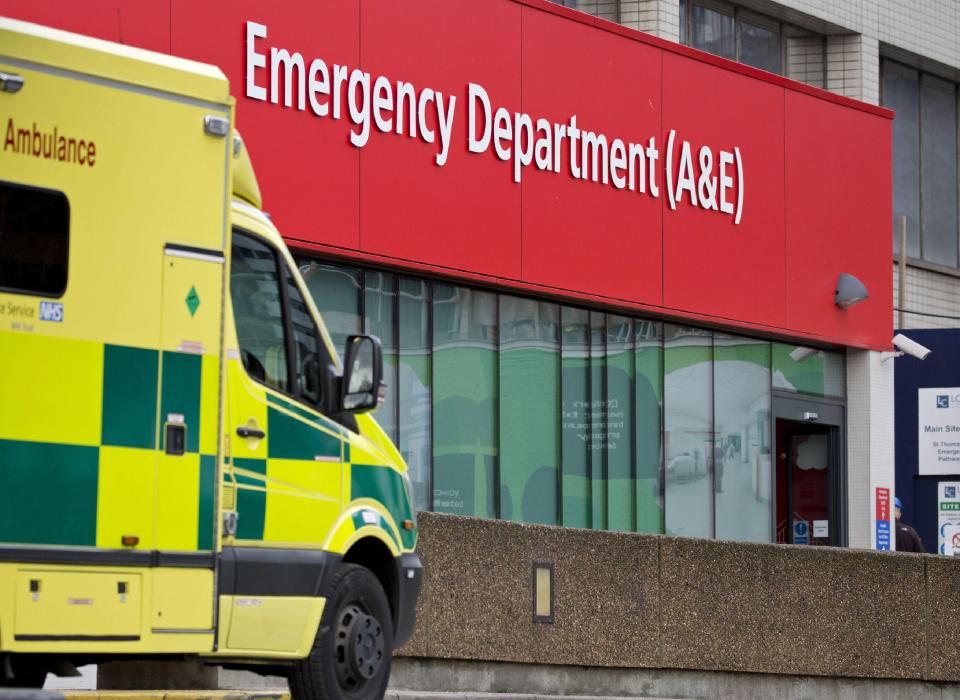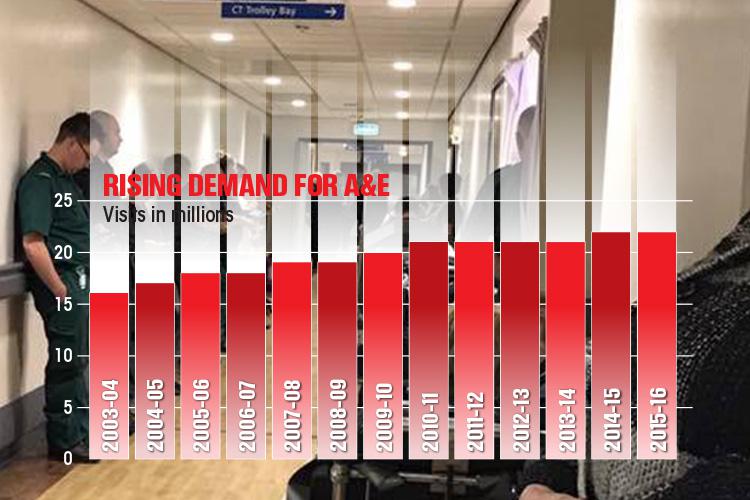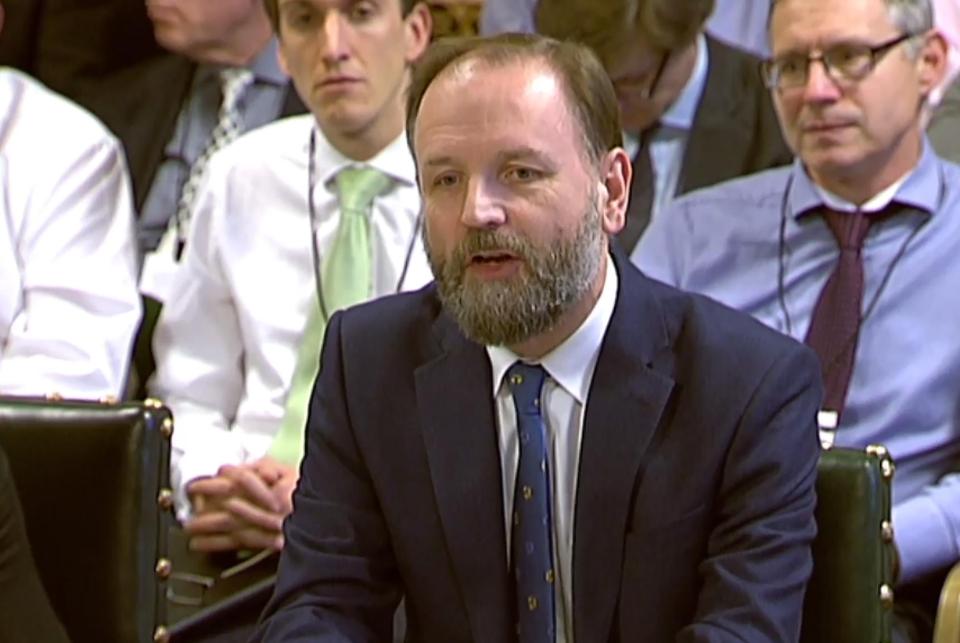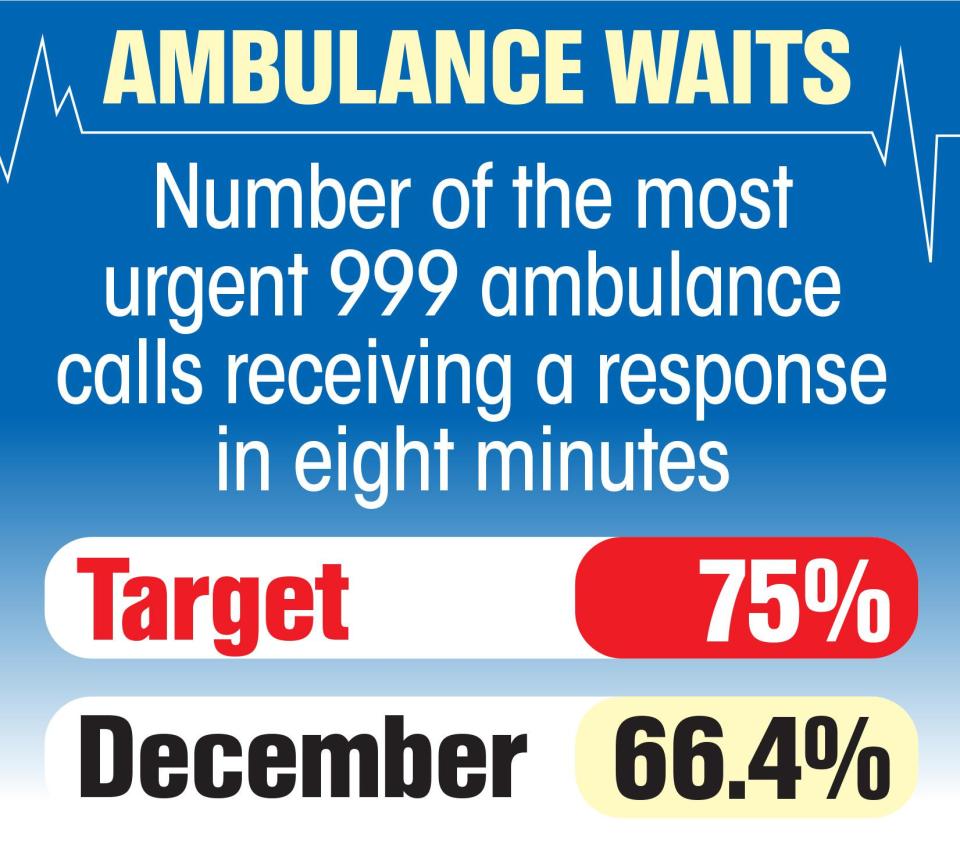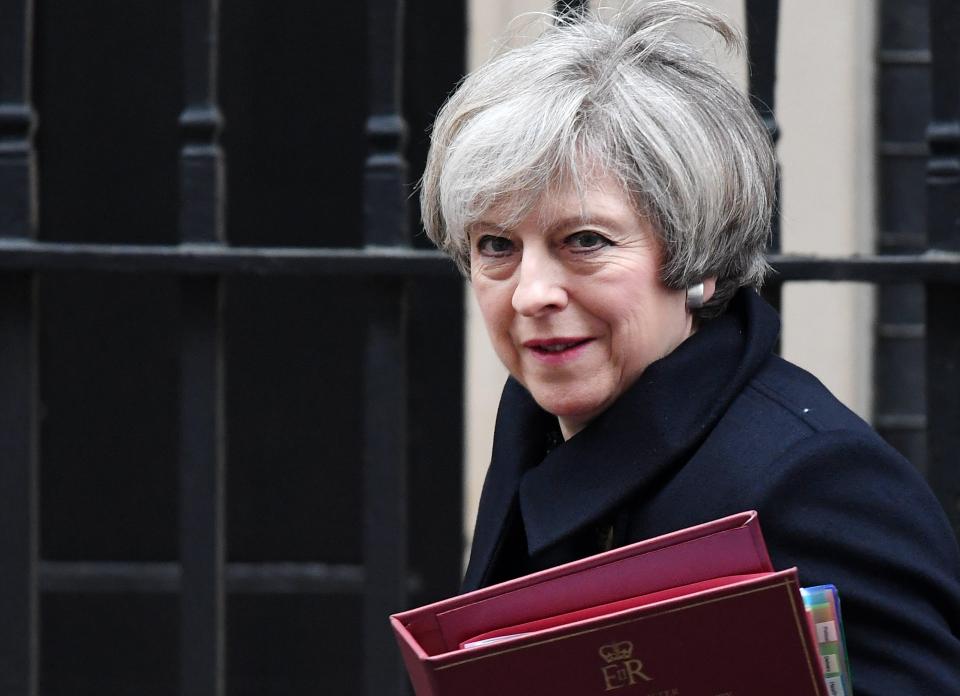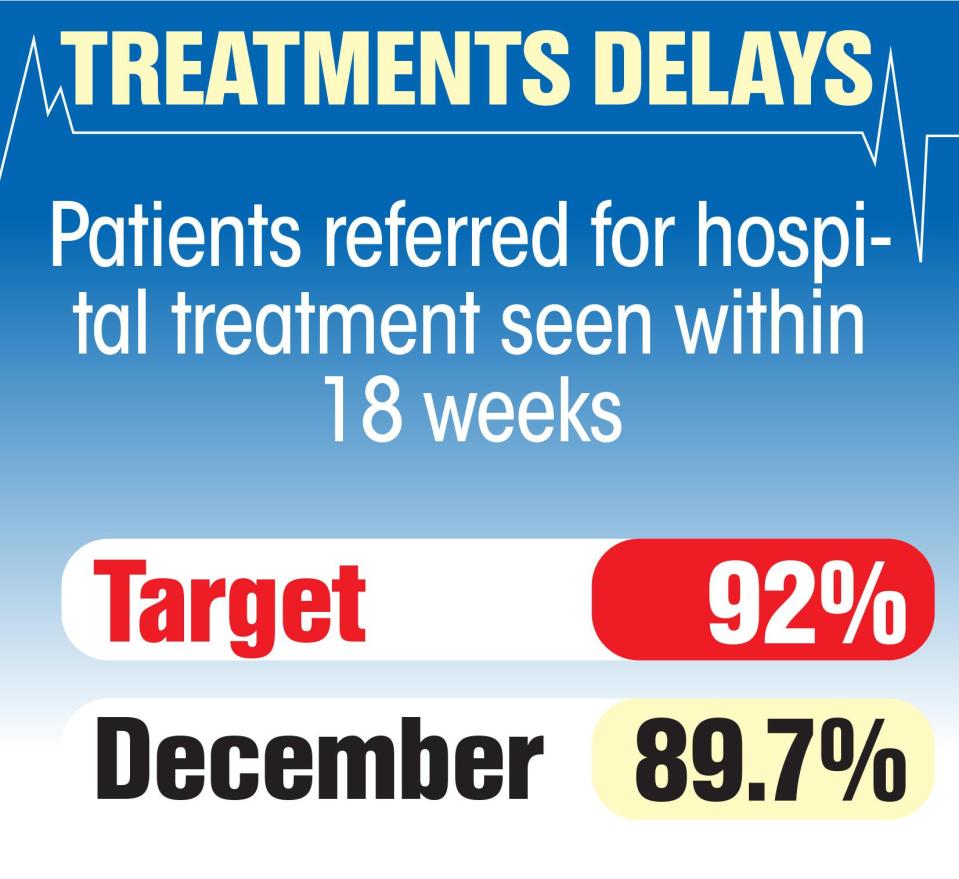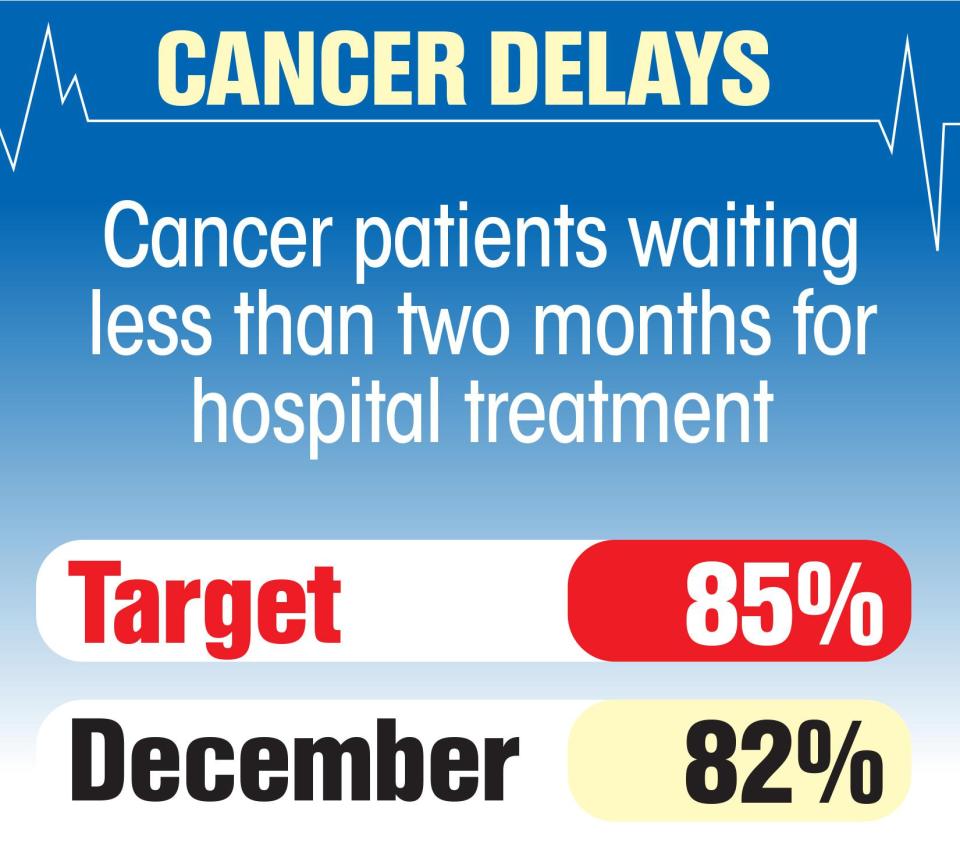New figures show NHS struggled through worst month on record missing a raft of critical targets
More than 60,000 sick Brits waited up to 12 hours on trolleys or chairs to get a NHS bed in December – a record high
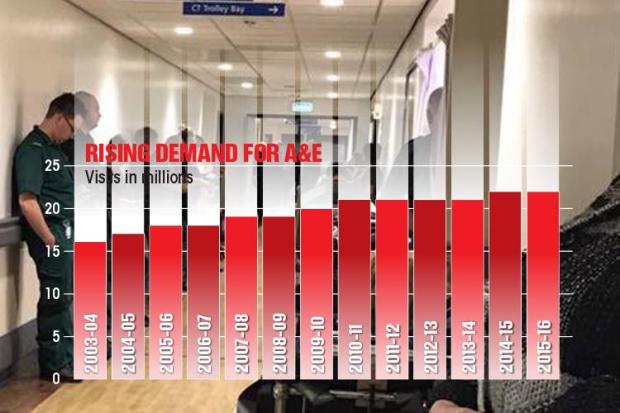
OVERWHELMED hospitals struggled through their worst month on record after missing a raft of critical targets.
More than 60,000 sick Brits waited up to 12 hours on trolleys or chairs to get a NHS bed in December – a record high.
A&E waits are now the longest in recent history.
NHS data for December reveals just 86.2 per cent of casualty patients were seen within four hours.
They are expected to treat 95 per cent of patients within this time.
Data leaked to the BBC shows performance was even worse last month.
And cancer treatment delays are also the highest on record.
More than 85 per cent of patients should start receiving cancer care within 62 days of being referred by their GP.
But this target was missed throughout 2016, with only 82 per cent seen in time.
It meant 25,157 sick Brits saw their survival chances diminish.
Bed-blocking in December was also the highest on record.
And the percentage of patients waiting more than 18 weeks for treatment has fallen below 90 per cent for first time since March 2011.
Neurosurgery is consistently the worst performing speciality.
Mr Richard Kerr, consultant neurosurgeon and a council member of the Royal College of Surgeons, said: “Patients who need brain or spinal surgery are some of the sickest we will see in the NHS so it exceptionally worrying that they have some of the longest waiting times.”
Shadow health secretary Jon Ashworth said: "Theresa May has lost control of the NHS this winter and patients are paying the price as target after target is missed and standards of care deteriorate.
"Thousands more people are waiting for treatment, people are stuck in hospitals even when they're well enough to go home, and key standards on cancer care and ambulance response times are being missed.
"These are some of the worst figures we have seen. Experts are saying that standards are being pushed back 15 years or more. Behind each of these statistics is a patient suffering and in unacceptable discomfort. It's making Theresa May's utter disregard for the dire state of the NHS all the more disgraceful."
But Prime Minister Theresa May has maintained that the NHS is getting more than the extra £8billion it has asked for by 2020.
But Simon Stevens, chief executive of NHS England, told MPs last month that she was “stretching it” with her claims.
He told members of the NHS England board that the NHS was under pressure, but thanked hard-working staff.
He said a number of measures were needed to stem the rise in A&E attendances, including "substantial changes to 111" and urgent care services.
He said a principal driver of a reduction in the number of beds available in hospitals was delayed transfers of care, which "have gone up by 90% over the past two years".
Matthew Swindells, NHS England's national director for operations and information, said: "NHS frontline services came under real pressure in December with A&E, ambulances and NHS 111 all helping record numbers of patients and callers.
"Despite these pressures, it is a tribute to the professionalism and dedication of doctors, nurses and other staff in A&E that they continue to see, treat, admit or discharge the vast majority of patients within four hours."
Dr Mark Holland, president of the Society for Acute Medicine, said while things have improved slightly this winter, "we are still seeing significant pockets of stress in the system".
He added: "We yet again call on the Secretary of State for Health to acknowledge the crisis. It is blatantly obvious to frontline healthcare workers and, more importantly, the patients they serve, that our NHS can no longer cope."
John Appleby, the director of research at Nuffield Trust, said the figures were a "very real reminder" of the problems facing the ailing NHS.
He said: "Today’s figures paint a stark picture of the very real pressures facing NHS hospitals across the country.
"We already know that hospitals are running very close to full capacity across the entire NHS. Today’s figures provide a very real reminder that when hospitals are close to bursting, problems back up across the whole system, creating an often distressing experience for patients and staff alike, and risking patient safety.
"Despite the very best efforts by NHS staff and the development of new services to relieve pressure on A&E, demand for healthcare is showing no signs of abating.
"We must face up to the fact that we will pay - either through accepting a poorer performing NHS or by finding extra money for a better health service."
SICK SENT OFF HOME
By JANET DAVIES, Royal College of Nursing Chief
BEHIND every missed target is a patient and family experiencing some of the worst conditions the health service has seen for years.
There is no easy way to explain to a sick patient why they’ve been waiting on a trolley for 12 hours or more.
Nurses are being told to discharge patients before they are fit, just to free up beds.


